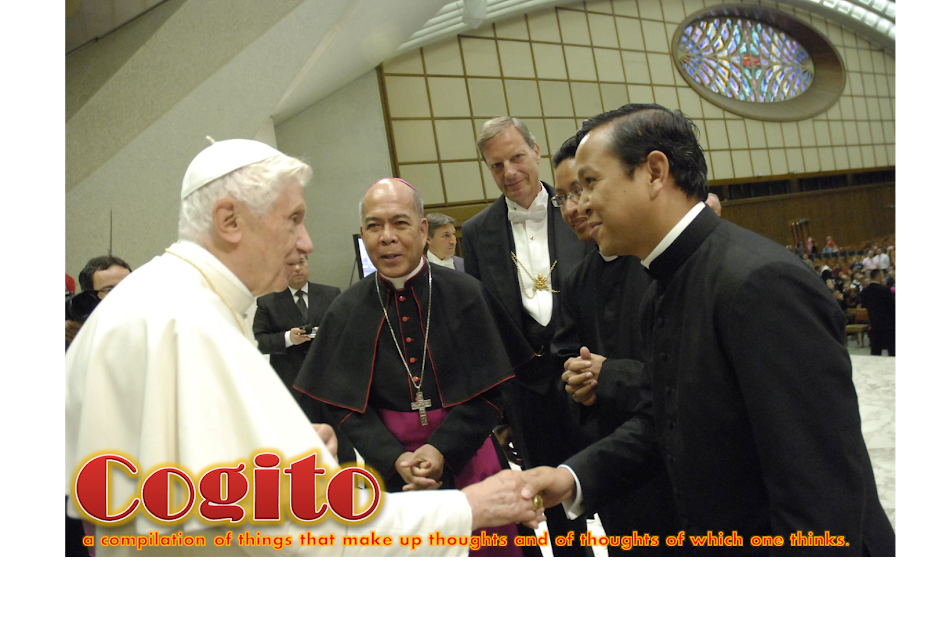Homily: New Year 2014
“Mary kept all these things, reflecting on them in her heart”.
As we end the year 2013 and begin the 2014, we behold before
us the image of Mary, the Mother of God, reflecting on all the marvelous events
that happened in her life lately: the Anunciation by the angel that she would
become the Mother of God, the conception and the birth of John, and now, the
birth of Jesus. Mary kept all these
things in her heart.
The Church, on this Solemnity of Mary, Mother of God,
invites us to imitate Mary in her silent and contemplative disposition. As we
start the New Year, we, too, must reflect on all the marvelous deeds that God
has done in our lives during the year that now ends. Like Mary, we shall keep
all these things. Like Mary, our soul shall also proclaim the greatness of the
Lord.
Taking indication from the ancient liturgy of the city of
Rome, the revised liturgy of Vatican II has restored the solemnity of Mary, the
Holy Mother of God, and placed it on January 1, the first day of the year. Mary
has been venerated as Theotokos, the Mother
of God, since ancient times. In 431, the Council of Ephesus declared decisively
that the divine motherhood of Mary is a dogma of faith. It is a singular
dignity from which all other privileges of Mary flow: the Immaculate
Conception, the Assumption and other titles of Mary that we find in the Litany.
They say that the moment a woman gives birth to her child,
she ceases to think of herself and begins to focus all her life on her child.
Mary is Theotokos, that is, “the
Bearer of God”. The moment she became Theotokos,
she ceased to think of herself. From now on, all her life is focused on Jesus,
her Son. Jesus became the center of her existence. Every breath she takes was
for Jesus.
That is why, Mary is an excellent model for us to imitate as
we start this New Year. With Mary, we should also make Jesus the center of our
lives this year 2014. With Mary, let us fix
our gaze on Jesus. When we fix our eyes on the Lord all throughout the
year, we are assured of two consequences.
First, when we fix our gaze on Jesus, slowly but surely, we become more identified with Him, as
we should be. And if we are identified with the Son of God, we will also become
children of God. This is what St. Paul told the Galatians (Second Reading): “God sent His Son… so that we might receive
adoption. As proof that you are children (of God), God sent the Spirit of His
Son into our hearts, crying out, ‘Abba, Father!’ You are no longer a slave but
a child of God”.
If we are no longer slaves, but children of God, then we
should strive to act as God’s children. Let us not remain slaves to sin and vices.
The best way to greet 2014 is not to gather round fruits but to gather sound
virtues like charity, generosity, humility and sincerity. If you are a son or a
daughter of God, then there’s no need to worry of what 2014 would bring you. “We
may not know what our future holds. But we know who holds our future”. And that
is enough. So why consult the horoscopes instead of the Gospels for guidance on
what to do and how to behave this 2014?
The second consequence
when we fix our gaze on Jesus this year is that we will certainly receive numerous blessings from the Lord. Our
First Reading (Book of Numbers) assures us that if we invoke the name of the
Lord, He will bless us. “The Lord said, ‘This is how you shall bless the Israelites
(and us). The Lord bless you and
keep you! The Lord let his face shine upon you, and be gracious to you! The Lord
look upon you kindly and give you peace!”
Three specific blessings are promised to us this New Year:
(1) the Lord will keep us – He will keep
us in good health, if we don’t need purification through bodily or spiritual sickness.
He will keep us in joy, if we cooperate in His grace by avoiding sin, the only
cause of moral sadness; (2) the Lord’s
face will shine upon us and will be gracious to us – He will keep an eye on
us always, guarding and protecting us from every kind of evil. But He cannot do
anything if we deliberately misuse our freedom and choose the evil of sin
rather than the grace of God; (3) the
Lord will give us peace – Peace, says Mother Teresa, is not the absence of
war – of inner conflict, of suffering, of pain – but the presence of Christ,
amidst these things. 2014 will be peaceful in the measure that each of us will fight
to keep the presence of God alive every day in our hearts.
Brothers and sisters, let us begin the year 2014 with Mary, meditating
in silence on the marvels the Lord has done for us. Beginning this New Year,
let us fix our gaze on Jesus so that we may become true children of God. With the
words of the Responsorial Psalm, “may God
bless us in His mercy”. Happy New Year!






